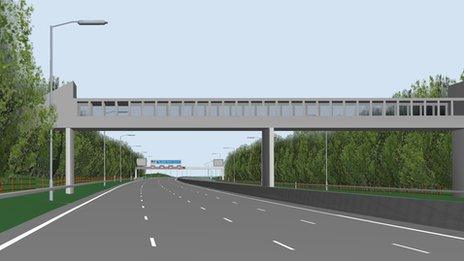M4 'smart motorway' planning inquiry under way for Theale to Heathrow
- Published
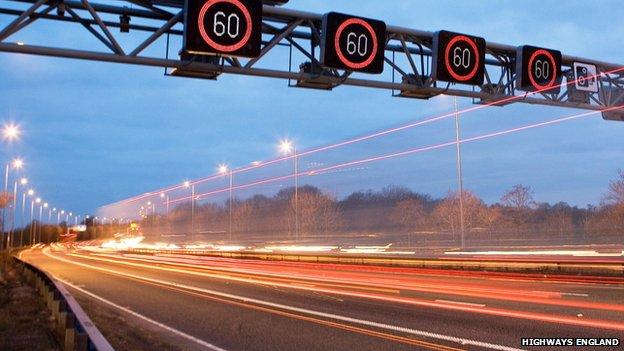
Highways England said drivers would experience "safer, more reliable and less congested" journeys
A planning inquiry is under way to create a "smart motorway" along the M4 in Berkshire.
Highways England wants turn the hard shoulder into an extra lane between junction three by Heathrow Airport and junction 12 at Theale to tackle periods of heavy congestion.
The scheme, costing up to £862m,, external will improve traffic flow and ensure "less stressful driving", supporters say.
Opponents claim it will increase congestion and affect the environment.
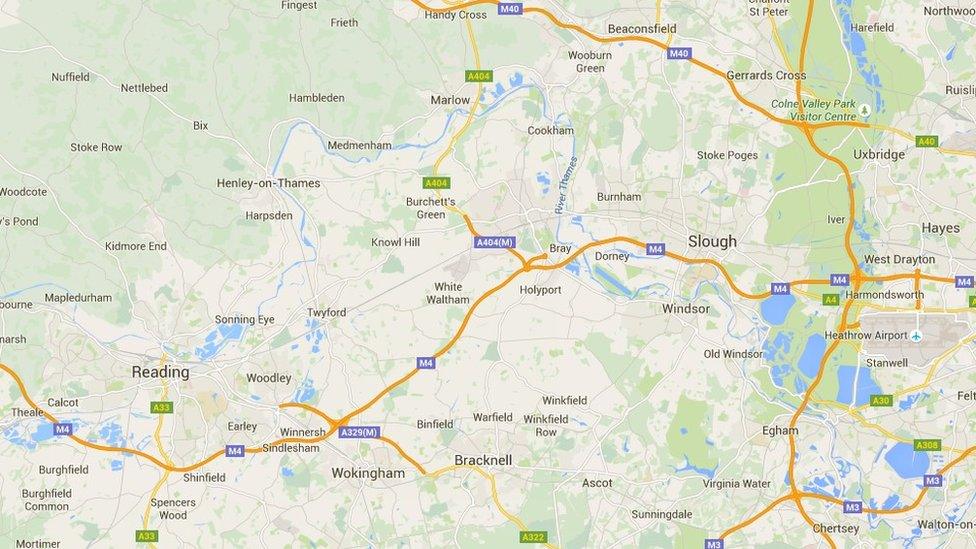
The smart motorway would run from junction 12 at Theale to Heathrow airport at junction three
The motorways are called "smart" because technology will be installed to monitor traffic, provide information to drivers, and ease congestion by using variable speed limits and utilising the hard shoulder.
"Emergency Refuge Areas" will be put in place every 2.5 km (1.6 miles) so drivers can come off the hard shoulder and await recovery.
The first one was introduced on the M42 near Birmingham in 2006 and there is now also one on the stretch of M4/M5 near Bristol.
Chief scientist Alan Stevens at the Transport Research Laboratory in Crowthorne, which carries out modelling for the smart motorways, said: "They help the traffic go better, drivers get shorter and more predictable journeys and less stressful driving.
"We did a lot of modelling work and put people into driving simulators to see how they would respond, and actually we found no problems at all."
John Booth from Reading Friends of the Earth said smart motorways are not the solution to congestion.
"The reason they're doing this is they want to cater for more traffic on the motorway and will encourage more traffic growth, and that will have a knock on effect on air quality, on climate change emissions, on noise and on congestion on the non-motorway network," he said.
Following written representations for six months and a three-month public reaction period, the decision will be down to Transport Secretary Patrick McLaughlin.
- Published30 June 2015

- Published23 July 2014
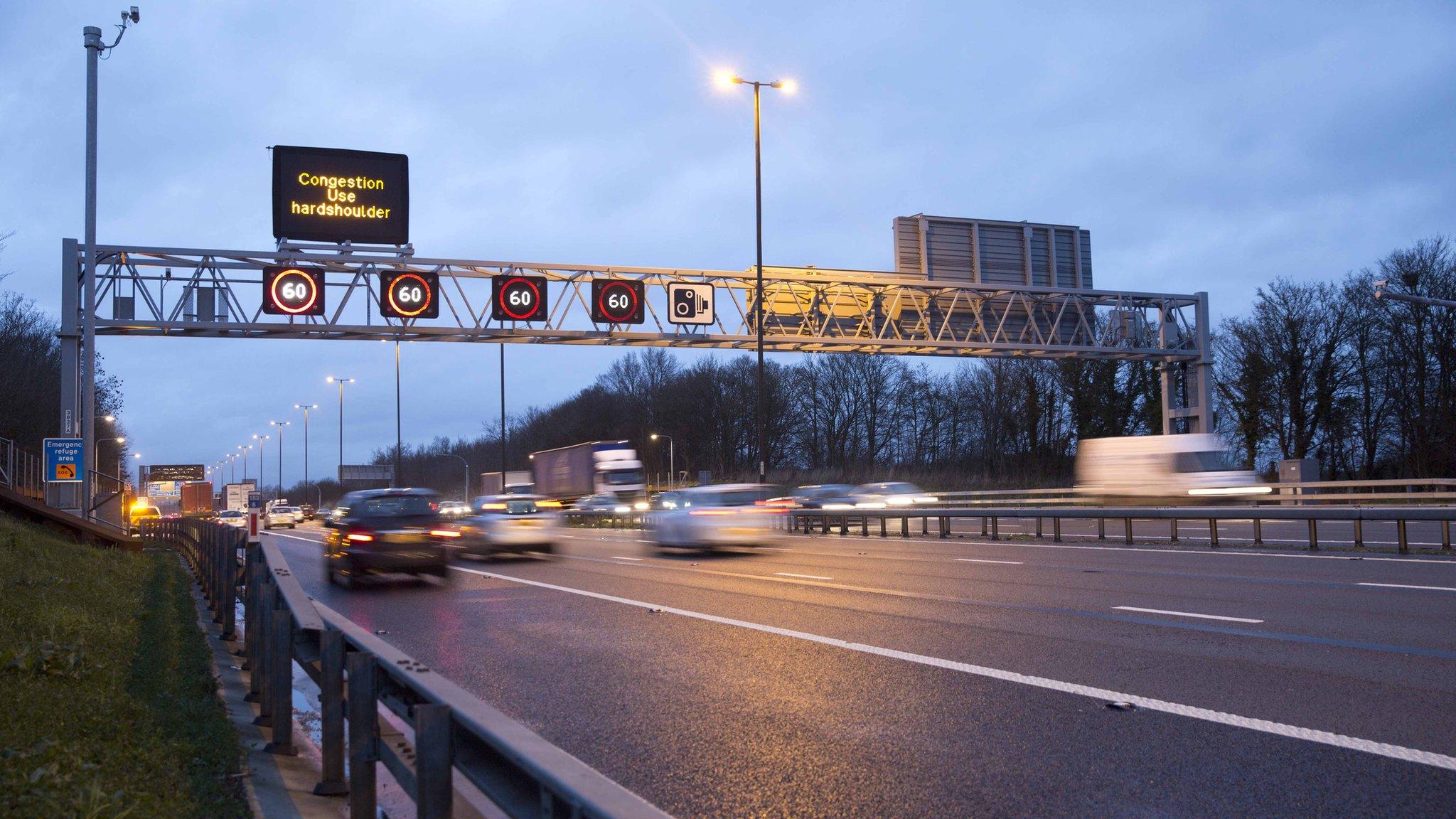
- Published18 November 2014
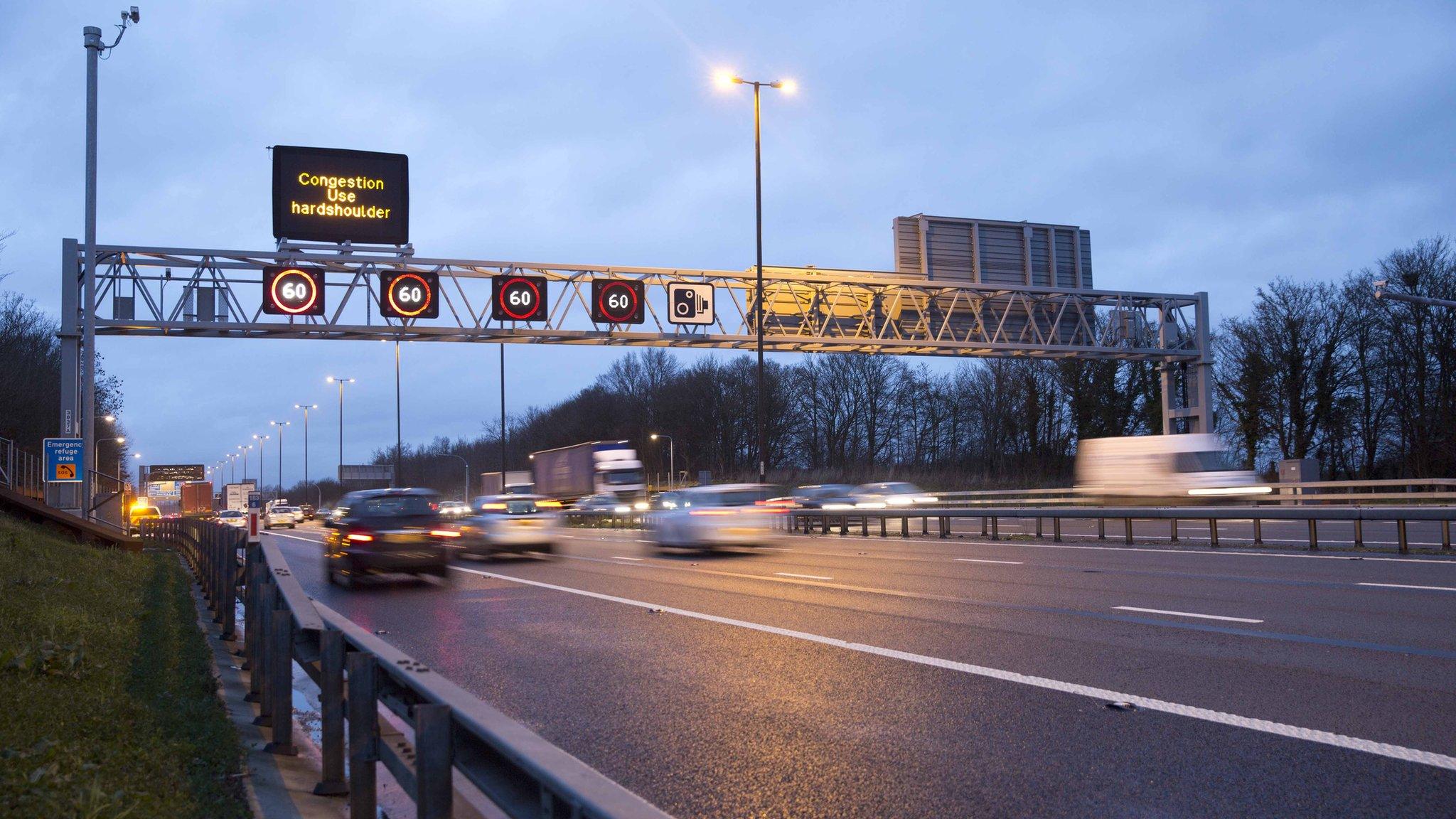
- Published14 July 2014
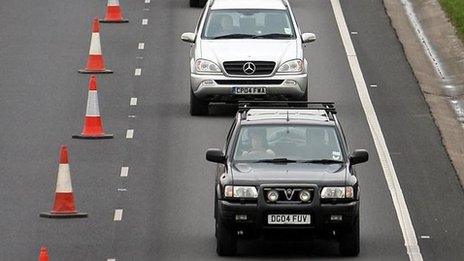
- Published5 November 2013
